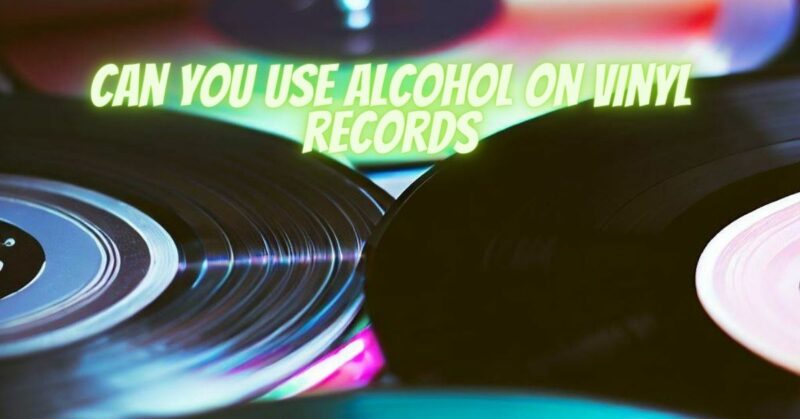Vinyl records are cherished for their warm, analog sound, making them a preferred medium for audiophiles and music enthusiasts. To maintain the audio quality and longevity of vinyl records, proper cleaning is essential. One controversial topic in the world of vinyl maintenance is the use of alcohol for cleaning records. In this comprehensive article, we will explore the practice of using alcohol for vinyl record cleaning, its benefits, potential drawbacks, and best practices to ensure your records remain in excellent condition.
Understanding the Need for Cleaning
Vinyl records, with their delicate grooves, are prone to collecting dust, dirt, fingerprints, and various contaminants over time. These impurities can result in surface noise, pops, and crackles during playback. Regular cleaning helps remove these particles, improving sound quality and prolonging the life of your records.
Using Alcohol for Vinyl Record Cleaning
Many vinyl enthusiasts use alcohol, typically isopropyl alcohol (rubbing alcohol), as a cleaning agent. Here are the key considerations regarding its use:
Benefits of Using Alcohol:
- Effective Cleaning: Alcohol is a solvent that effectively dissolves and lifts away contaminants from the record’s surface, including oils, dirt, and grime.
- Quick Drying: Alcohol evaporates rapidly, reducing the risk of leaving moisture on the record that could lead to warping or mold growth.
- Affordability: Isopropyl alcohol is readily available and cost-effective compared to some specialized record cleaning solutions.
Potential Drawbacks:
- Residue Buildup: Alcohol can leave behind a residue if not properly diluted or if it contains additives. Residue can affect sound quality and even damage the record over time.
- Groove Damage: Excessive or abrasive use of alcohol can strip away the protective coating on the record’s surface and potentially harm the grooves.
- Label Damage: Alcohol can harm the record label, especially if it comes into contact with it. Labels can be essential for identifying and preserving the record’s value.
Best Practices for Using Alcohol in Vinyl Record Cleaning
If you choose to use alcohol for record cleaning, it’s essential to follow best practices to minimize potential risks:
- Dilution: Use distilled water to dilute isopropyl alcohol to an appropriate concentration. A common recommendation is a 3:1 or 4:1 ratio of water to alcohol.
- Application: Apply the diluted alcohol sparingly to a clean, lint-free cloth or a soft brush. Do not pour alcohol directly onto the record.
- Gentle Cleaning: Gently clean the record in a circular motion, following the grooves. Avoid applying excessive pressure, and be careful near the label area.
- Rinse and Dry: After cleaning, rinse the record with distilled water to remove any residual alcohol and contaminants. Allow it to air dry thoroughly before playback.
- Avoid Frequent Use: Limit alcohol cleaning to situations where other methods have failed or for deep cleaning purposes. Frequent use can increase the risk of damage.
Using alcohol for vinyl record cleaning can be effective when done correctly and cautiously. It can help remove contaminants, improve sound quality, and prolong the life of your records. However, it’s essential to be mindful of potential drawbacks, including residue buildup and groove damage. Always follow best practices, consider alternative cleaning solutions designed for vinyl records, and prioritize the preservation of your cherished collection to ensure that your vinyl records continue to provide a pristine listening experience for years to come.


